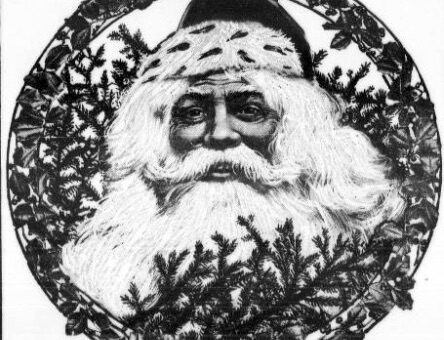
Here are a bunch of old Christmas superstitions and omen that were adopted by the Christian religion. They are a fascinating look at what Christians believed in the past about Christmas superstitions and everything that followed.
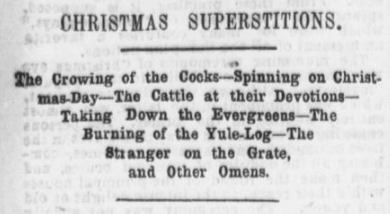
Christmas Superstitions
It is not unnatural that the Christmas season should have many peculiar superstitions attaching to it, nor that some of them should still linger in the minds of the people.
One of the most ancient and curious of these was that concerning…
The Crowing of the Cocks
Silent during the hours of darkness throughout the rest of the year, it was believed in olden times that “this bird of dawning” crowed from the setting of the sun on Christmas Eve to its rising on Christmas morn.
Shakespeare has seized upon this popular tradition, and turned it to good advantage in one of the ghost scenes in Hamlet. “Marcellus” reminds his companions that the ghost “faded on the crowing of the cock,” and then continues in the following beautiful strain:

Spinning on Christmas Day
In old times there was a prejudice among the people of Scotland against spinning on Christmas Day, they believing that it was nothing less than sacrilege to be so engages.
The Calvinistic preachers, overflowing with the anti-Christmas prejudices, took especial pains to rid their flocks of this idea. Their efforts in that direction are thus described in John Hamilton’s Facile Traictise:
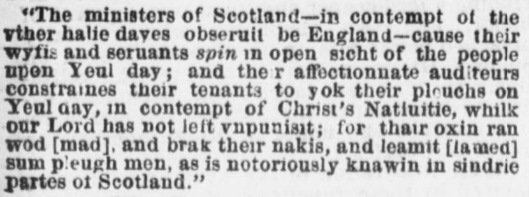
The Devotion of Cattle
In the counties of Cornwall and Devon, in England, it was long believed, and it is probable that the notion still lingers there and in other out of the way places, that at twelve o’clock the cattle in their stalls would fall upon their knees and make “a cruel moan, like Christian creatures.”
It is also said that these dumb brutes, knowing naught of the change of style in reckoning the year, continued their devotions on the eve of the old Christmas.
The tradition probably originated in the fact that in many of the old pictures of the Nativity the ox and ass are represented as being upon their knees, in acknowledgement of the sovereignty of the newborn babe.
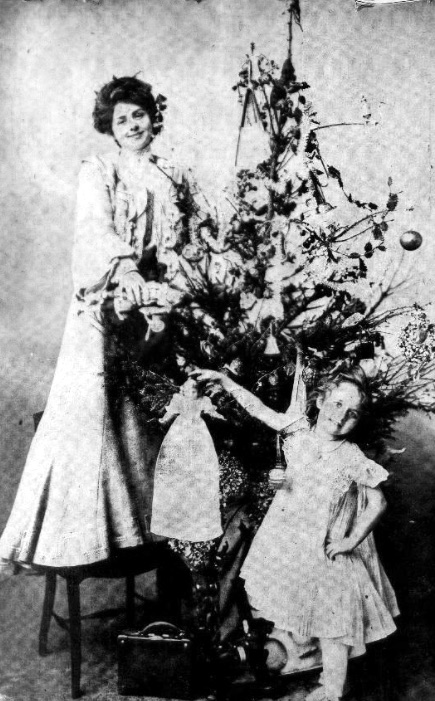
Down with the Evergreens
We have already stated that, according to the canons of the ecclesiastics, all the Christmas decorations of churches and houses must be removed before the second of February.
If any of the evergreens were suffered to remain after that period, it was considered an omen of ill, as expressed in the following lines by Herrick:

There were likewise many superstitious notions associated with…
The Burning of the Yule log
It was the custom to deposit in some secure place the charred remains of the Yule log, from which to light its successor on the ensuing Christmas.
And it was believed that the preservation of this remnant would unfailingly secure the house against fire throughout the coming year.
So, too, if a person who was troubled with a squint should chance to enter the hall while the log was burning, the omen was considered unpropitious.
A like idea attended the arrival of a person with bare feet, more especially when that person happened to be a flat-footed woman.
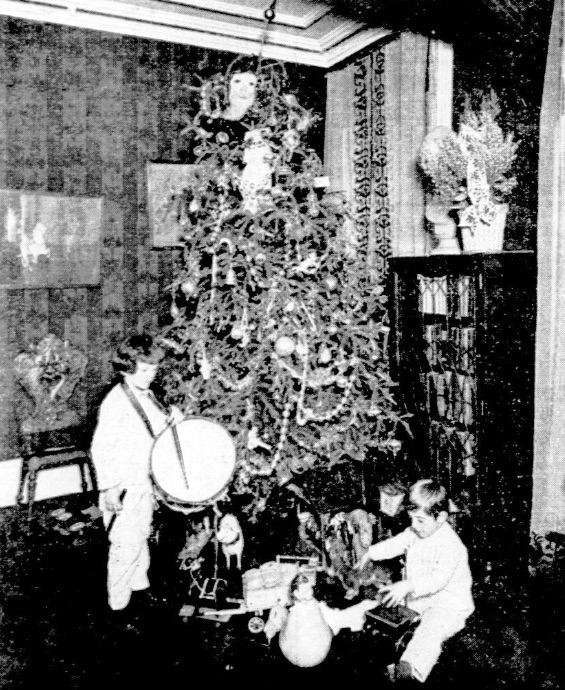
The Stranger in the Grate
This was another omen which was variously interpreted, according to the circumstances.
As is well known, the action of the fire on the smoke arising from the coals causes it to assume fantastic forms, from which it is possible for a lively imagination to picture anything that happens to come in mind.
The rank of the fanciful stranger was therefore determined by the height of the bar to which the flake of smoke for the moment adhered.
The stranger’s perfections were determined by the outline of the flake, each jag or rent in which betokened a corresponding defect.
The stranger would bring joy or sorrow, according as the fire burned bright or low; and should the flames suddenly start up in a sparkle, it was augured that a hero from the wars was close at hand.
If any anxious maiden desires to know just when her hero will arrive, she must clap her hands before the grate, and calculate the days of waiting by the time consumed by the flake of smoke in falling from its place.
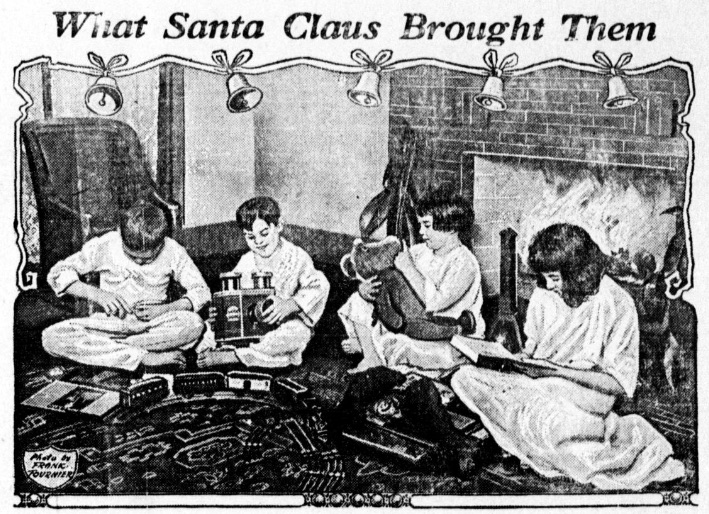
Other Ominous Occurrences
Among other ominous occurrences, if a person unluckily snuffed out a candle, his or her pairing with one of the opposite sex during the coming year was a thing not to be thought of; indeed, a spark should remain, from which the candle could be rekindled by blowing on it.
So it was believed that bread baked on Christmas Eve would never mould; and when Christmas fell on a Sunday, good luck awaited every one, while the reverse was the case when the festival happened on a Saturday.
Source: The evening telegraph. (Philadelphia [Pa.]), 24 Dec. 1866.

